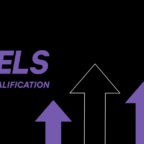University Level
Study Higher Education qualifications
Welcome to Weymouth College's Higher Education Centre on Dorset’s beautiful Jurassic Coast, offering a range of university level courses specifically designed to provide the key skills for work and for degree-level study in partnership with our awarding bodies: University of Plymouth and Pearson. We are proud to offer a value range of two-year Foundation Degrees (FdA/FdSc), Higher National Diplomas (HNDs) and Higher National Certificates (HNCs) together with a one-year Batchelors Degree (BSc Hons) in Professional Studies (Health and Community) Top Up all allowing students to stay local and study towards their higher education qualifications. Our Foundation Degrees will allow students the option to complete their degree level studies with a designated one-year top validated by their partner university either at the College or university or a partner institution or apply to other relevant courses at a university of their choice. Our HND courses are designed to give you the skills for a particular field of work, they can lead straight to a career or you can apply to top up to a relevant course at a university.Qualifications Explained
Qualifications on offer include:
- Access to Higher Education
- Higher National Certificate and Higher National Diplomas
- Foundation Degree
- Diploma in Education and Training
- Bachelor’s Degree
Access to Higher Education (A2HE)
Access to HE normally acts as entry onto the first year of an Honours degree or Foundation degree course. This is a one year, two day a week course, nationally validated through Apt Ed. The A2HE programme is designed for aged 19+ students to gain entry to Higher Education across a range of subjects.
All applicants are required to possess the equivalent of a GCSE Grade C pass or above in either English or Maths prior to starting the course. As part of the interviewing process applicants are required to complete initial assessments in English and Maths
Higher National Certificates (HNC) and Higher National Diplomas (HND)
HNCs (Higher National Certificates) and HNDs (Higher National Diplomas) are work-related (vocational) higher education qualifications. HNCs and HNDs are designed to give you the skills to put that knowledge to effective use in a particular job. They are highly valued by employers both in the UK and overseas, and can also count towards membership of professional bodies and other employer organisations. HNCs can take one year to complete full time and two years part time (or in other situations such as distance learning). HNDs take two years full time and can also be taken part time (which takes longer).
HNCs and HNDs are at level 5 on the National Qualifications Framework. On the Qualifications and Credit Framework, HNCs are at level 4 and HNDs are at level 5.
Foundation Degrees FdA/FdSc
Foundation degrees are designed to increase access and widen participation into Higher Education and are one of the quickest and convenient routes, particularly for students who prefer to study locally
A Foundation degree is a modern, higher education qualification, designed and delivered in partnership with degree awarding bodies, sector skills councils and with the involvement of employers. This is devised to equip you with the skills and knowledge employers are looking for ensuring that you will be in the best position to find the job of your choice when you graduate.
Full-time Foundation Degrees are a two year course often timetabled to take place over two or three days a week.
A professional work experience placement is usually an essential part of the course which enhances your career opportunities.
Diploma in Education and Training (DET)
The Diploma in Education and Training (DET) is for anyone working as or planning to become a teacher in further, adult or continuing education. You should already be qualified or experienced in the subject you wish to teach to at least to Level 3 standard. You will have a high level of skills and possess at least a Level 3 or above in literacy, numeracy and ICT.
This is a Level 5 qualification which will prepare you for a teaching role and is suitable for those who come from a variety of vocational backgrounds. You may already be in a teaching role or have no prior experience. However, you will need to complete 100 hours of teaching practice across a range of levels in recognised teaching and learning environments.
Bachelor’s Degree (BSc Hons) ‘Top-Up’
A Top-Up degree is the equivalent to the final year of undergraduate study, giving you a Bachelor’s level qualification. These courses enable you to ‘top-up’ an existing qualification, whether that’s a Foundation degree or another relevant Level 5 qualification such as HND in an appropriate subject discipline.
Tuition fees - study locally to help reduce your student debt
In addition to saving on accommodation and livings costs our Higher Education fees are generally less expensive than most universities.
| Full-Time | Cohort | Course Fee |
| First Degree | All students | £8500 |
| Foundation Degree | New students | £8000 |
| Foundation Degree | Continuing students | £6750 |
| HNC/HND | New students | £8000 |
| HNC/HND | Continuing students | £6250 |
| Part-Time | Cohort | Course Fee |
| HNC
HNC |
All students
Continuing Students |
£4000
£3250 |
HNC is the equivalent of the first year of a degree and is valued by employers as a recognised professional development for their employees. As this is a part-time course it is suited to students who are currently employed and want to gain a work related qualification or students who might wish to enhance their employment opportunities.
Approved 2025-26 Annual Fee Information
Click here for more information on Student Finance, Support & Funding
The University of Plymouth Partnership
As a student studying on a University of Plymouth course you are part of a wider community of approximately 14,000 Plymouth students studying off campus at one of over 20 partnership institutions. The University of Plymouth values partnerships as a means of providing inclusive, high quality student learning opportunities in the UK and internationally.
To support your studies with Plymouth there are a wealth of services and e-resources available. For some you may require your University of Plymouth portal log in details, if this is the case you will be prompted by a log in box.
- Students as partners– students and staff are members of the academic community and are all partners with complementary roles and responsibilities in the learning process. Students and staff have jointly developed an agreement that sets out key principles that underpin this partnership and through this, we’re enhancing academic standards and achieving the University’s vision, mission and values.
- Student voice– at Plymouth we value your feedback.
- Student induction to Plymouth Library– your essential induction to our support and e- resources.
- Lynda.com– a continually growing and evolving library of training videos and tutorials covering a wide range of software, technologies and business topics. Students and staff members can take advantage of free 24/7 access to the entire library of training; this includes over 2,800 courses and 110,000 tutorials with new releases every week.
The Plymouth Award – the Plymouth Award recognises and celebrates your achievements outside of your studies. Many University of Plymouth students already make significant contributions to the life of the University and the communities in which they live and work. The Plymouth Award is one way of showing how valuable these contributions are and highlighting the learning and personal growth you gain from these activities. When you complete the Plymouth Award you’ll receive a certificate that is nationally recognised by employers.
Visiting & Applying
We encourage all our HE applicants to visit us and are happy to arrange a personal visit.
If you would like to arrange a visit to discuss your options or just want to know more, please contact Matthew Jarvis on matthew.jarvis@kmc.ac.uk
How to Apply
In the case of Foundation Degrees you will need to apply via UCAS https://www.ucas.com/ucas/undergraduate/apply-and-track using the appropriate course and institution codes detailed on individual course pages.
Application via UCAS is available from the Autumn prior to your year of entry. Please feel free to contact us on 01305 764733 for more information and support about applying through UCAS.
Places are limited so early application is advised. However, although UCAS publish deadline dates for application please enquire as we are often able to accept applications beyond these dates.
All other applications can now be made online via the link on individual course pages.
Get in Touch
The lecturers and staff will be happy to provide you with any advice and guidance you need to select a course that best meets your needs. For any further questions or information, please contact Matthew Jarvis on matthew.jarvis@kmc.ac.uk
Student Contracts
Your Student Rights in Consumer Law
Under Consumer Market Authority Legislation (CMA) Weymouth College is required to ensure that the information we provide to you is accurate, easily accessible and covers what is necessary for you to make informed choice.
Our commitment to you
- Through the Course Information Pages we will endeavour to provide information about programmes of study, their structure, and tuition fees and additional course costs before you make your application.
- We will provide clear details about tuition fees up-front.
- As the relationship between you and the College is a contractual one, we will make the terms of that contract easily accessible and available before you take up our offer. Please see the links below for further details about the Student Contracts for both our University of Plymouth and Pearson programmes.
University of Plymouth Partner College – Student Contract
University of Plymouth Partner College – Key Terms of Contract
The Student Voice
Your opinions and needs, often known as ‘Student Voice’ are an important aspect of being an HE student. The Quality Assurance Agency (QAA) for Higher Education suggests that ‘Student engagement is all about involving and empowering students in the process of shaping the student learning experience’. Thus the Student Voice is really important and as such we actively encourage all students to get involved at a range of levels in their learning and in quality assurance, enhancement and management of their course.
You will be given the opportunity to feedback your opinions throughout the academic year via your student representatives, through surveys and from one to one sessions with your lecturers.
You will be asked to evaluate your learning experience on individual modules by completing a questionnaire. This information is then fed through the Annual Monitoring Process for each programme area. These actions are monitored throughout the year, through Committees which have student representation.
HE Student Policies
You will find below links to the current Weymouth College Higher Education Student policies
HE Admissions Policy and Procedure
HE Appeals Policy for Level 4+5 Non Uni
HE Assessment Internal Moderation Policy
HE Attendance and Engagement Policy
HE Code of Practice on Freedom of Speech
HE Compensation and Refund Policy
HE Extenuating Circumstances Policy
HE Originality Software Checking Policy
HE Study and Wellbeing Review Policy
Weymouth College Access and Participation Plans (including provider impact reports)
Access and Participation Plan 2022-23 to 2026-27 – variation November 2022
Access and Participation Plan 2022-23 to 2026-27 – variation November 2022 – Summary
Access and Participation Plan 2022-23 to 2026-27
Access and Participation Plan 2020-21 to 2024-25
Access and Participation Plan 2019-20
Access and Participation Plan 2019-20 – monitoring – provider impact report
IHRA working definition of antisemitism
Weymouth College supports initiatives that seek to tackle prejudice and discrimination. It recognises the IHRA definition as supporting the College’s existing policies on Equality and Diversity, reinforcing the message that antisemitism will not be tolerated. When considering any allegation due regard will be given to the definition below.
In accordance with the recommendation of the Home Affairs Select Committee in 2016, the College acknowledges that:
- It is not antisemitic to criticise the Government of Israel, without additional evidence to suggest antisemitic intent.
- It is not antisemitic to hold the Israeli Government to the same standards as other liberal democracies, or to take a particular interest in the Israeli Government’s policies or actions, without additional evidence to suggest antisemitic intent.
The IHRA working definition of antisemitism is: “Antisemitism is a certain perception of Jews, which may be expressed as hatred toward Jews. Rhetorical and physical manifestations of antisemitism are directed toward Jewish or non-Jewish individuals and/or their property, toward Jewish community institutions and religious facilities.”
Choose a subject

Engineering & Automotive

Health, Social Care & Early Years


























